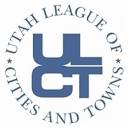 The Utah League of Cities and Towns Convention in downtown Salt Lake City recently featured a local panel on digital inclusion.The convention featured many great workshops ranging in a variety of specialties. The Advancing Digital Inclusion workshop featured a panel of speakers including Jennifer Seelig with Salt Lake City Corp., Kelly Jorgensen with US Dept. of Housing and Urban Development, Carrie Francis with Boys and Girls Club of Greater Salt Lake City, and Kelleigh Cole, Director of the Utah Broadband Outreach Center.
The Utah League of Cities and Towns Convention in downtown Salt Lake City recently featured a local panel on digital inclusion.The convention featured many great workshops ranging in a variety of specialties. The Advancing Digital Inclusion workshop featured a panel of speakers including Jennifer Seelig with Salt Lake City Corp., Kelly Jorgensen with US Dept. of Housing and Urban Development, Carrie Francis with Boys and Girls Club of Greater Salt Lake City, and Kelleigh Cole, Director of the Utah Broadband Outreach Center.
The workshop was presented to be able to discuss leaders in the community working toward digital inclusion and how the community can come together to close the state’s digital divide. The panelist discussed how the lack of access and digital skills is holding certain individuals back in low-income areas. The workshop gave government participants ideas and tools on how collaborations with nonprofits and private sector partners can help bridge the digital divide and get more Americans online.
The workshop began with highlighting a news article indicating that according to census Utah ranked third for households with high-speed internet. Panelists emphasized that a three-legged stool is needed, in which it needs counties, schools and internet service providers (ISPs) work together to produce programs. More importantly, programs and outreach centers need multiple partners.
Kelly Jorgensen, with Connect Home Nation and Housing and Urban Development, discussed different ways that they are giving back to the community by hosting an event for low-income individuals to buy low cost computers and subscribe to internet for only $10 a month. The Boys and Girls club discussed the bridge between home and school and the computer labs they offer for children who do not have internet or computers at home to do their homework.
Kelleigh addressed several issues brought up during the panel including what role the state and governments play to help communities have better access to broadband. Connecting communities allows individuals and businesses to have better economic success. The internet allows for global innovation and allows rural residents to stay in their communities while attending classes.
The panel also touched on best practices for communities including laying conduit during road construction projects. This practice allows multiple providers to enter the roadway at a reduced cost.
St. George is a good example of being strong advocates and collaborators for better broadband in their city. With any new developments that come, the city will meet and send a plans to all providers and give them the opportunity to install services. The Utah Broadband Outreach is a good resource for helping cities locate what providers are around them. Looking at the community and finding where your public access points are is important to figure out if there are available computers and internet for community members.